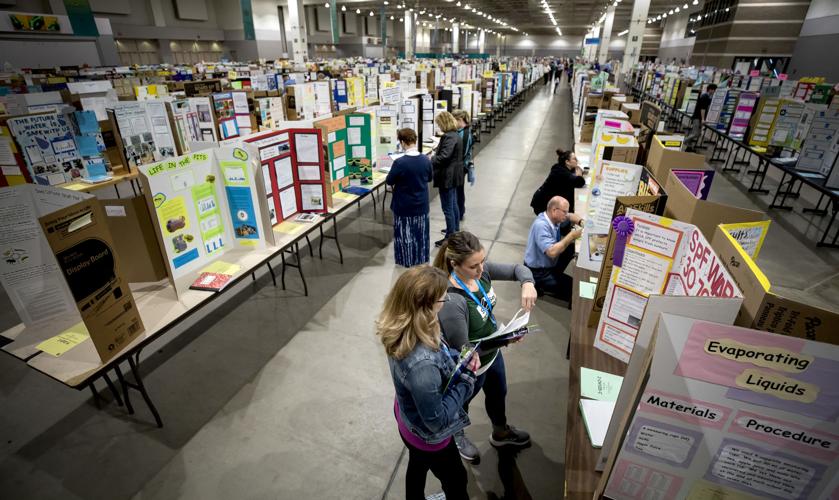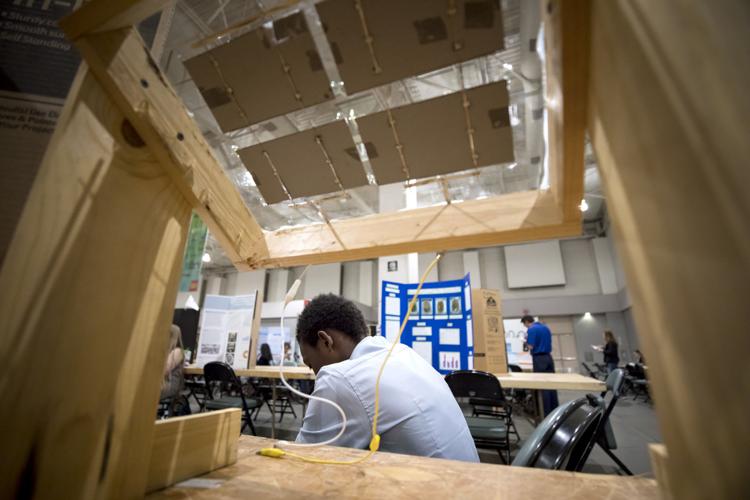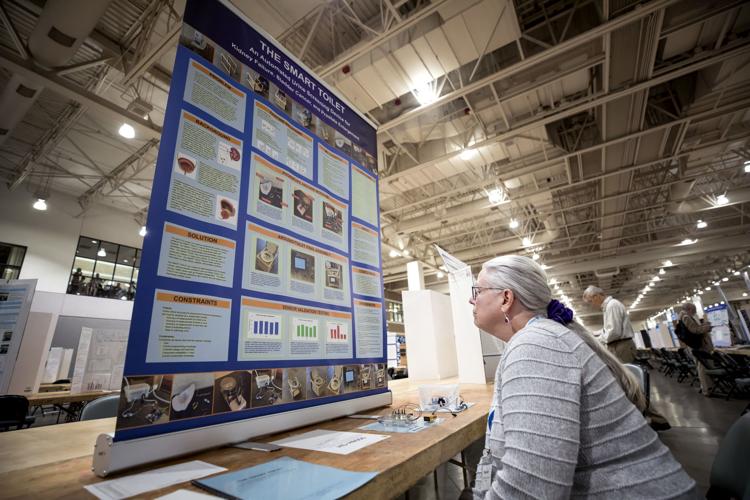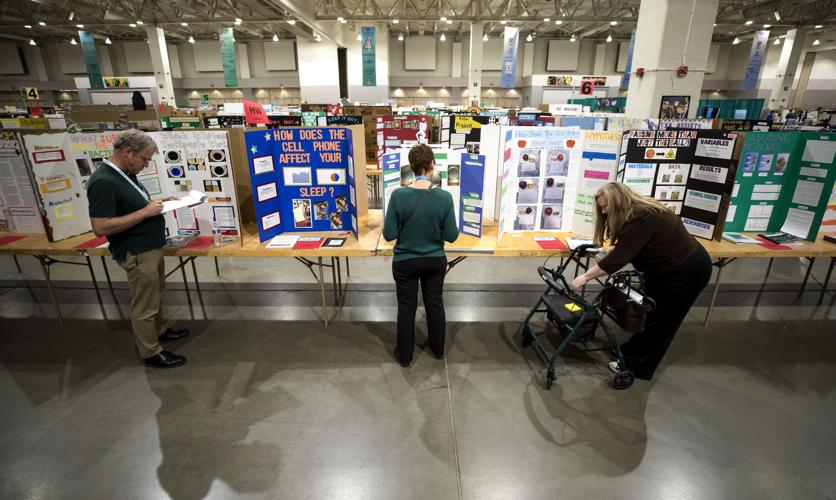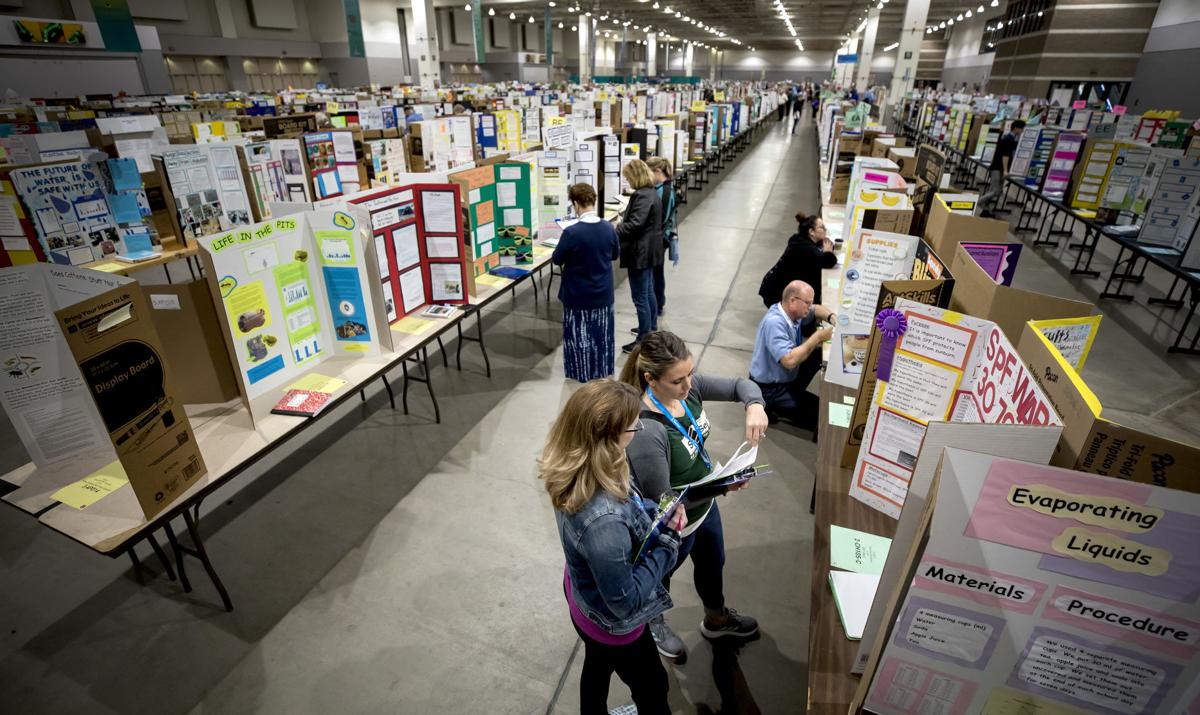We're kicking off December with 12 Days of Nonprofits — a 12-day celebration of the many local organizations that provide needed services to our community.
“Mommy, why are all the winners boys?”
A board member at the Southern Arizona Research, Science and Engineering Foundation (SARSEF) overheard a young girl ask her mother that while attending the awards ceremony for their regional science fair in 2008.
Since then, SARSEF has strived to engage student populations that are underrepresented in the fields of STEM.
“That was when stars really aligned and we realized it was time for us to have paid staff and to not just celebrate students doing science, but find ways to engage more students in science in a meaningful way,” said SARSEF CEO Julie Euber.
SARSEF started as a small science fair at the University of Arizona in 1955. What began with only 120 projects has since grown to thousands of projects, leading the organization to become a nonprofit.
Every year, students across Southern Arizona participate in the SARSEF Regional Science Fair where they get to conduct research projects to represent their schools. There are over $100,000 in prizes, trips and scholarships that are awarded to students.
Typically, 2,000 projects compete at the regional fair. Last year, the fair had 1,099.

From left to right, judges Kent Pflibsen, Mary Pflibsen and Chrisinda Ballew, review elementary school entries during Southern Arizona Research, Science and Engineering Foundation's 65th annual science fair at the Tucson Convention Center, 260 S. Church Ave., in Tucson, Ariz., on March 10, 2020.
“We're asking for them to really be thoughtful about what they're doing and to really engage deeply into the work that they're doing, and they rise to the occasion,” Euber said. “They're just so smart. It's so cool when a student is talking about their project and you can just hear the pride in their voice.”
Aside from the fair, SARSEF also offers a wide variety of programs for children at any age. For example, there's the “What Do We Wonder” program where SARSEF educators help students build off their natural curiosity and explore questions they really care about, Euber said.
In the program, a SARSEF educator visits classes and holds workshops so kids can see the full research experience, Euber said.
“We try to actually bring the tools from science and engineering, so they can ask questions about problems they want to solve,” Euber said. “If that's, how do I stop my little sister from annoying me, getting something from the top shelf, or helping a loved one with medical issues ... It really runs the gamut for what students want to focus on.”
Other SARSEF programs include “Roadmap to a Rockin’ Project,” where families can identify an issue in their lives and create a solution through their own science projects, and “STAR Lab,” an opportunity for high school students to gain access to professional research resources and mentorship at the UA.
“I just love thinking about these students being out there exploring their own interests,” Euber said.

Henry Roth Gordon, ninth grader at University High School, sits next to his project while waiting for judges during Southern Arizona Research, Science and Engineering Foundation's 65th annual science fair at the Tucson Convention Center, 260 S. Church Ave., in Tucson, Ariz., on March 10, 2020. Henry Roth Gordon's project focused on how plants under solar panels affect plant growth and photovoltaic output.
Despite COVID-19 throwing a wrench in plans for the regional fair, SARSEF was able to find a way around it. It created an entirely virtual project for the fair where students were able to use the same tool to build their presentation about their projects.
Since the project was virtual, SARSEF was able to have judges from across the country. There were even a few judges from Canada who joined and interviewed the students.
“It's really been a different angle,” Euber said. “I think we're still really kind of digesting what we take from this time and make sure we use it to continue to expand access for our students.”

Judge Mary Saylor reads paragraphs of a high school students entry on a smart toilet, titled "The Smart Toilet An Automated Urine Screening Device for Kidney Failure, Bladder Cancer, and Prostate Enlargement," during Southern Arizona Research, Science and Engineering Foundation's 65th annual science fair at the Tucson Convention Center, 260 S. Church Ave., in Tucson, Ariz., on March 10, 2020.
Euber said she believes that SARSEF allows students to build an interest in STEM and makes those career paths more accessible to students. She said the critical thinking and problem-solving skills they are learning will help them no matter the career they choose.
“I think that what we're really providing the community is a chance for students to build that connection to STEM in a meaningful way, but also giving the community an opportunity to celebrate kids for their brains. I think that's really powerful.”
How to help
For those interested in helping SARSEF, donations are accepted on the website. SARSEF also encourages community members to volunteer at events or special projects.
“We are giving the students the tools and the time and everything like that to explore,” Euber said. “That is just so exciting for me. I really feel their passion and I have to say that means a lot.”


